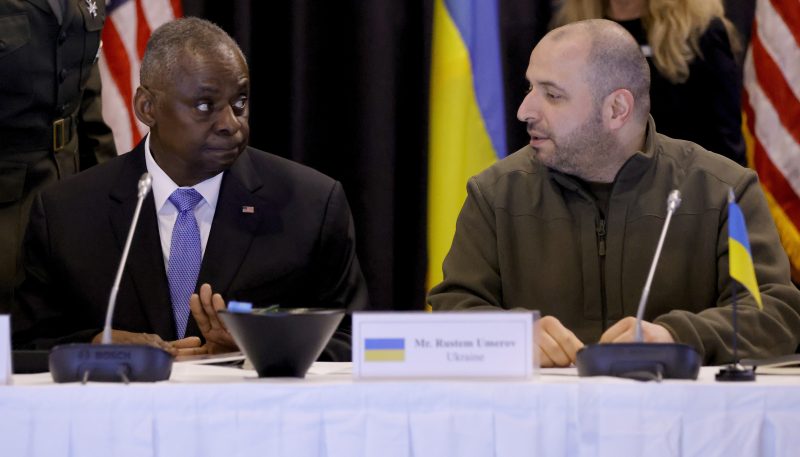The ongoing deadlock in the United States over providing aid to Ukraine has become a critical issue in recent talks aimed at securing international support for the Eastern European nation. The discussions among U.S. lawmakers have put the proposed assistance to Ukraine at a standstill, creating a sense of uncertainty and frustration among those advocating for a strong stance against Russian aggression.
At the heart of the deadlock is the question of whether the U.S. should offer military aid or impose tougher sanctions on Russia. Proponents of military assistance argue that providing Ukraine with advanced weapons and training is necessary to deter further Russian aggression and bolster the country’s defenses. They emphasize the need to send a strong message to Moscow that further intervention in Ukrainian affairs will not be tolerated.
Opponents of military aid, on the other hand, caution that such a move could escalate tensions with Russia and provoke a larger conflict that the U.S. is not prepared to handle. They argue that imposing sanctions and engaging in diplomatic efforts are more effective means of supporting Ukraine without risking a direct confrontation with Moscow.
The deadlock in the U.S. Congress has not gone unnoticed by Ukraine and its supporters, who are eagerly awaiting a decision on the proposed aid package. Ukrainian officials have emphasized the urgent need for military assistance to counter Russian aggression in the region and secure their country’s territorial integrity. They view U.S. support as crucial in deterring further Russian incursions and maintaining stability in the region.
Meanwhile, the international community is closely monitoring the situation, with many countries expressing their support for Ukraine and urging the U.S. to take decisive action. NATO allies have voiced their solidarity with Ukraine and reaffirmed their commitment to defending its sovereignty and territorial integrity. European leaders have also called for a unified approach in supporting Ukraine and deterring further Russian aggression in the region.
As the deadlock in the U.S. continues, the pressure is mounting on lawmakers to reach a consensus on the issue of aid to Ukraine. The outcome of these deliberations could have far-reaching implications for the future of Ukraine and the broader geopolitical landscape in Eastern Europe. It remains to be seen whether the U.S. will ultimately decide to provide military aid or opt for alternative measures to support Ukraine in its ongoing struggle for sovereignty and independence.


























